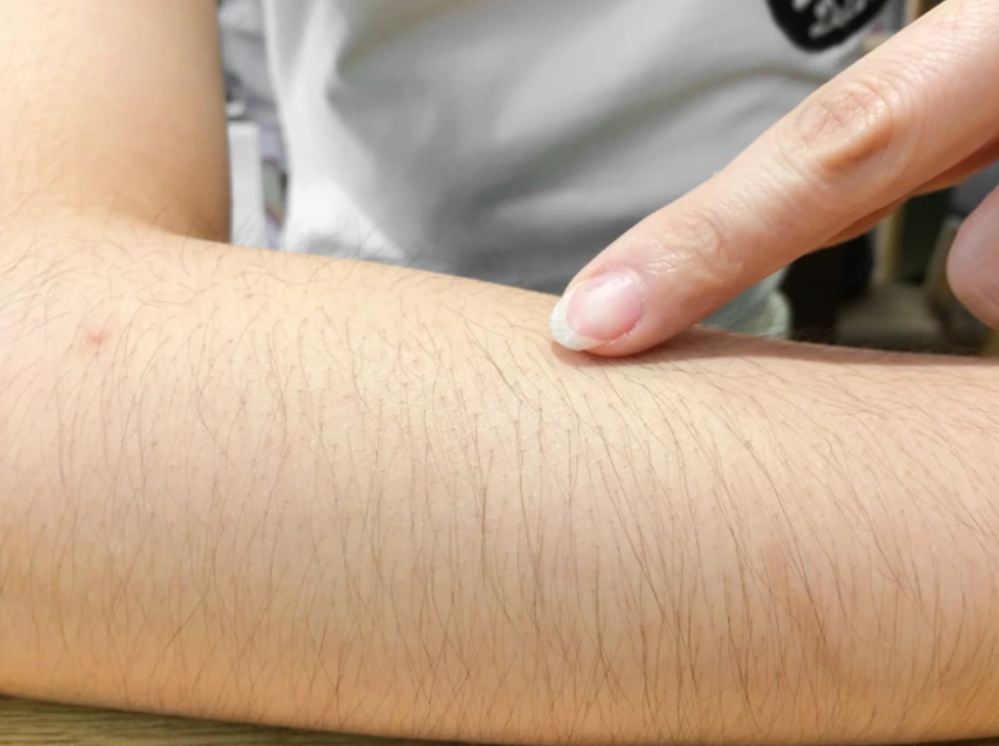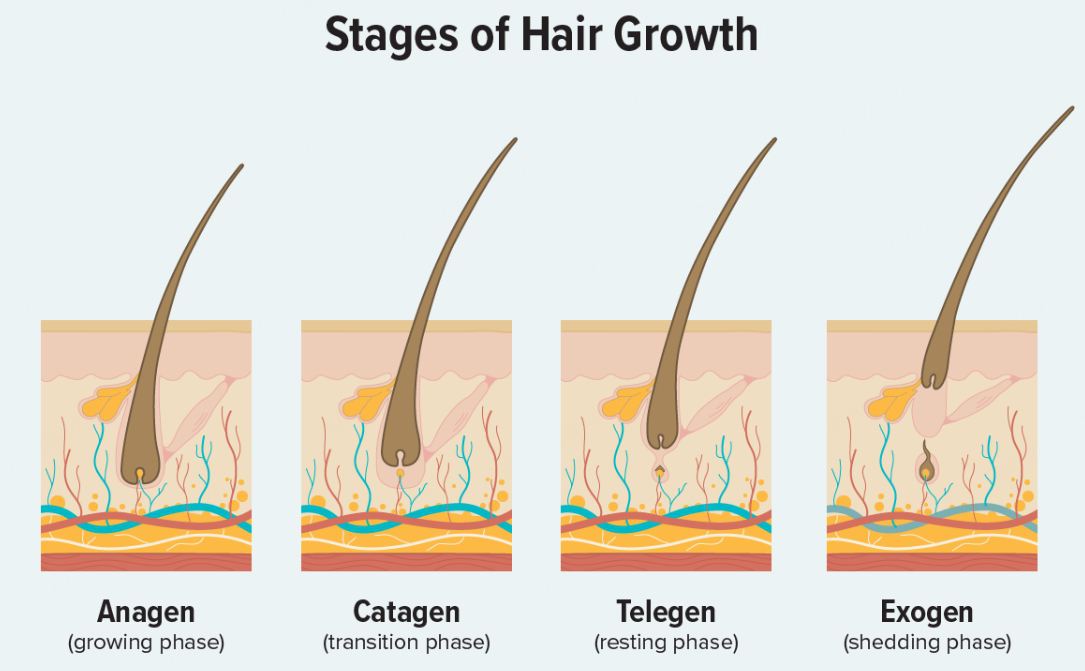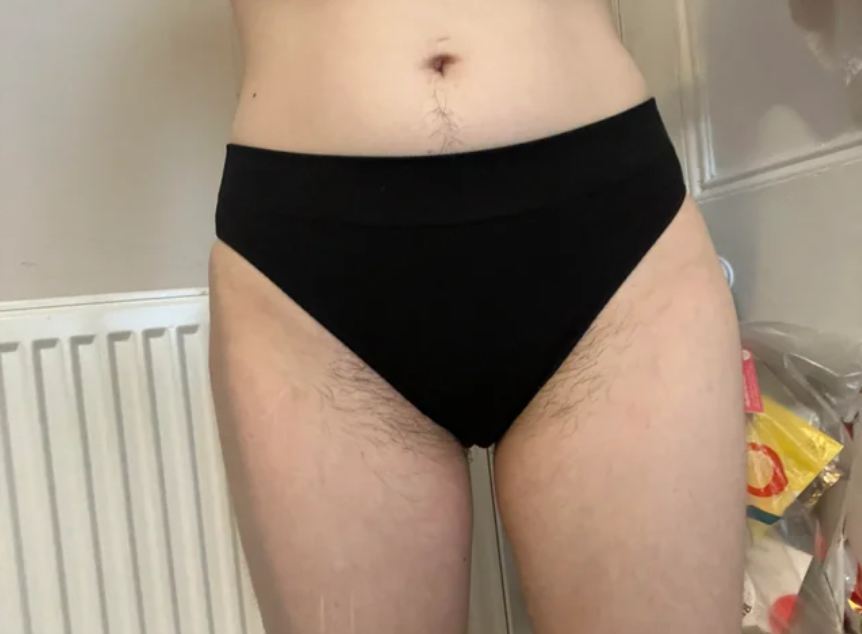Do you ever notice that hair stops growing at a certain length, especially the hair on your body, and that the hair on the scalp grows differently as compared to that of the body? Also, do you realize that not all hair strands grow back at the same rate when you remove the hair from your body?
Although it might seem astonishing, the reason behind the pattern of hair growth lies in the hair growth cycle. This leads us to the question of what the hair growth cycle is, what its phases are, and how it works.
To help you understand the physiology, timeline, and mechanism of the hair growth cycle, let us explain the stages of hair growth.
Table of Contents:
- Part 1: What is the Hair Growth Cycle?
- Part 2: Stages of Hair Growth Cycle
- Part 3: How do Stages of the Hair Growth Cycle Impact Hair Removal Methods?
Part 1: What is the Hair Growth Cycle?
 The hair growth cycle is defined as the phases a hair strand goes through from the time it sprouts to the time it sheds. Generally, the hair growth cycle is divided into 4 phases which allow the hair on your head to grow long for years while the others shed.
The hair growth cycle is defined as the phases a hair strand goes through from the time it sprouts to the time it sheds. Generally, the hair growth cycle is divided into 4 phases which allow the hair on your head to grow long for years while the others shed.
Similarly, the phases of the hair growth cycle on the body determine the length of the hair, the growth rate of the hair, and the impact of different hair removal methods.
These phases include anagen in which hair grows actively, catagen in which hair enters a transition period, telogen in which hair strands rest at their maximum length, and exogen in which hair strands are removed.
Part 2: Stages of Hair Growth Cycle
While you might know the meaning of phases of the hair growth cycle, let us understand each phase in detail here.
Anagen: The Active Growth Phase
The first and longest phase of the hair growth cycle is the anagen phase. This is the phase in which hair grows to its ideal length if it is not trimmed in the middle of the growth.
Around 80 to 90% of hair is in anagen at any point in time.
Physiology of Anagen
The hair grows out from the follicles, right? The follicles receive an active supply of blood from the blood vessels lying nearby. Additionally, hormones and hair growth factors act on the follicles.
During anagen, there is a rich supply of blood along with the growth factors and nutrients to the hair. Consequently, hair grows at its usual rate.
Timeline of Anagen
It is important to know that the timeline of each phase of the hair growth cycle is different for the hair on the head and hair on the body.
- Anagen lasts for 2 to 7 years for scalp hair
- Its timeline is around 4 to 6 weeks on body hair
- Hair on the face can actively grow for 16 weeks in men and around 6 to 8 weeks in women
Catagen: The Transition Phase
Hair is normally attached to the hair follicle in anagen while growing actively and it stops growing altogether in telogen. Now, catagen is the phase of the hair growth cycle that is present between telogen and anagen.
3 to 5% of hair is in catagen at a time.
Physiology of Catagen
In the catagen phase, the rich supply of blood to the hair follicles is lost. As a result, the hair follicle starts getting smaller and the hair strand detaches from the follicle. Hair appears like it is growing a little in the catagen.
However, it just comes on the surface after being detached from the follicle.
Timeline of Catagen
There is not much difference between the catagen phase of different parts of the body. So, it varies between 1 to 2 weeks on body and scalp.

Telogen: The Resting Phase
After catagen, comes telogen. It is the phase of hair growth where hair rests in length it has gained in anagen and catagen. Approximately 10 to 15% of hair on any part of the body or scalp stays in telogen.
Physiology of Telogen
While hair is growing at a slow rate in catagen, it completely stops growing in telogen. Neither is the hair receiving any nutrients nor are growth factors acting on it. Thus, there is no growth.
Timeline of Telogen
In the case of hair on the head, telogen lasts for around 100 days or 3 months. On the other, hair on the body is in telogen for a few days.
Exogen: The Shedding Phase
Lastly, there is a time when hair is removed from the follicles. Some experts consider it as a separate phase while others as the end of the telogen phase.
Instead of a particular percentage, it is the number of hair strands that matter. So, only 40 to 120 hair strands are in exogen which might be less than even 1% of the total hair volume.
Physiology of Exogen
Two things are happening at the same time in exogen. During exogen, hair strands are falling from the follicles and follicles are getting prepared to make new hair strands as well.
Timeline of Exogen
Just like telogen, exogen lasts for a few months on the scalp while only a few days on the face and body.
Part 3: How do Stages of the Hair Growth Cycle Impact Hair Removal Methods?
 We want the hair to grow on the head for as long as it can. But we never want hair to be visible on the face and body, right? So, let us head to the topic that might intrigue you. Here is how different stages of the hair growth cycle can determine the growth of unwanted hair.
We want the hair to grow on the head for as long as it can. But we never want hair to be visible on the face and body, right? So, let us head to the topic that might intrigue you. Here is how different stages of the hair growth cycle can determine the growth of unwanted hair.
Impact of Phases of Hair Growth Cycle on Shaving
Shaving is the most transient method of hair removal. Although it seems like phases of hair growth won’t impact it, it actually does. Here are the details of shaving in the hair growth cycle.
Anagen
Hair is growing to its full extent in anagen. While the hair is visible on the surface of the skin, a little part of the hair strand is under the skin as well. So, if you shave the hair in the anagen phase, it is likely that you will stay hairless for a longer time.
Furthermore, even if the hair grows, its length will be shorter than usual because a part of the hair strand is already trimmed.
Catagen
The effects of shaving on catagen are similar to that of the anagen. However, the time duration is shorter as compared to that of anagen.
For example, hair might take around a week to be visible on the skin if you cut it on catagen and around 2 weeks if you shave it in telogen.
Telogen
If you shave the unwanted hair in the telogen phase, it will grow back in a few days as the hair is already heading towards its shedding period.
Exogen
While hair is falling on one side, it is growing on the other side in the exogen phase. So, even if you shave the unwanted hair, there will be no effect and you will see new hair growing on your body in a day or two.
Impact of Phases of Hair Growth Cycle on Waxing/Epilation/Tweezing
In shaving, you remove the hair from the surface of the skin. In contrast, hair is removed from the roots in waxing, epilation, and tweezing. So, the effects of the hair growth cycle on these methods are slightly different from that of shaving.
Anagen
You can only remove the unwanted hair when they are a certain length by using the methods mentioned above. Therefore, hair is removed by plucking in the middle of the anagen phase.
In the case of plucking of hair, the leftover strand of hair does not become visible on the skin as that of shaving. Thus, the results last for 4 to 6 weeks.
Catagen, Telogen, and Exogen
These phases are not the ideal time period to remove hair with plucking. This is because the results last for around 2 weeks in catagen, and a week in telogen, and for no time in telogen.
Impact of Phases of Hair Growth Cycle on IPL/Laser Hair Removal
The phases of the hair growth cycle are most important for laser and IPL hair removal. This is because these hair removal methods target the hair follicle instead of the mere hair strands.

Anagen
For the light from laser or IPL to reach the hair follicle, the hair strand should be attached to the follicle as the light is absorbed in the pigment of the hair. Thus, IPL and laser hair removal are done in multiple sessions to target the anagen phase.
Catagen
The effects of IPL and laser hair removal are slight in catagen.
Telogen and Exogen
Unfortunately, IPL hair removal and laser are not effective if it is done in telogen and exogen. It is because hair has no connection with the follicles in these phases.
Conclusion
The hair growth cycle is comprised of 4 phases. The hair moves from a period of active growth where the blood supply to the follicle is good to a period where hair follicles prepare themselves for giving rise to new hair and the old hair shed.
The timeline of the hair growth cycle lasts for many years on the scalp hair and only a month or two for body and facial hair.
Furthermore, if you planning to remove the hair from your body, plan your hair removal sessions in anagen as hair removal is efficient when hair is attached to the follicle.

 By myulikeadmin
By myulikeadmin



